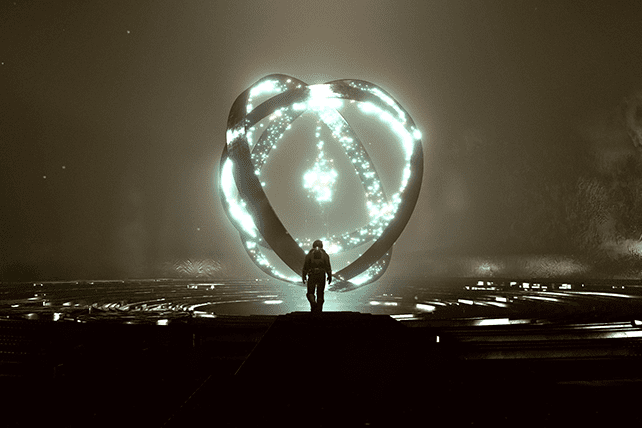Starfield also allows gamers to choose whether to play as a hero, a callous mercenary or even a pirate. They can try to de-escalate conflict by persuading their opponents to back down or paying them to go away. Or they can simply start shooting.
Clark said he tends to play video games the way he would behave in real life — being a peacemaker rather than choosing violence and being the good guy when he can. When he failed to do so in Starfield, the nonplayer characters, better known as “NPCs,” would look down on him. When he succeeded, they’d praise him.
“I could write a whole essay about gaining self-doubt and self-confidence from other people’s opinions of you,” he said. “And how it wears off.”
Tracie Simer, a former religion reporter and game store owner turned part-time dungeon master for tabletop games, said the game’s morality seems to change the longer you play. As the NPCs get to know your character, she said, they become less judgmental and more willing to live and let live — a little bit like real life.
She appreciated that the game’s developers portrayed religion in the game in a positive light. Other games, she said, have used religion as a source of conflict or painted it in a negative light. Simer said she also appreciated that choosing one faith didn’t make other characters look down on you.
That lack of hostility toward religion was refreshing, she said.
Mark Wolf, chair of the communication department at Concordia University Wisconsin and author of “Building Imaginary Worlds,” said religion has long played a role in popular video games. He pointed to Myst and Riven, both released in the 1990s, whose creators’ Christian faith played a role in shaping the popular puzzle adventures, which sold millions of copies. The games themselves, he said, could be a contemplative experience.
Other games, such as EVE Online, a multiplayer space adventure known for its legendary space battles involving players around the world, have also included religion in their world-building. Unlike Starfield, Wolf said, some of those games have allowed players to create their own religions.
Ben Chicka, a lecturer in philosophy and religion at Curry College in Milton, Massachusetts, said religions in Starfield are depicted more carefully than in some other games he has seen — especially if they take place in a post-apocalyptic world.
In Starfield, humanity abandoned Earth when it became unlivable and most of Earth’s solar system became deserted. Fleeing to the stars led to the creation of at least one religion in response to the vastness of space.
Isaac Bradshaw, a school counselor and Anglican Church in North America priest from Maryville, Tennessee, approved of Starfield’s approach to religion. For some characters, religion is central, while for others, it’s simply one part of their identity.
“I think this approach is almost more real in the way that people operate their spiritual life in the 21st century,” he said. “It’s an option you get when you build your character and it operates in the background. You get to choose the extent to which that background influences your choices.”

